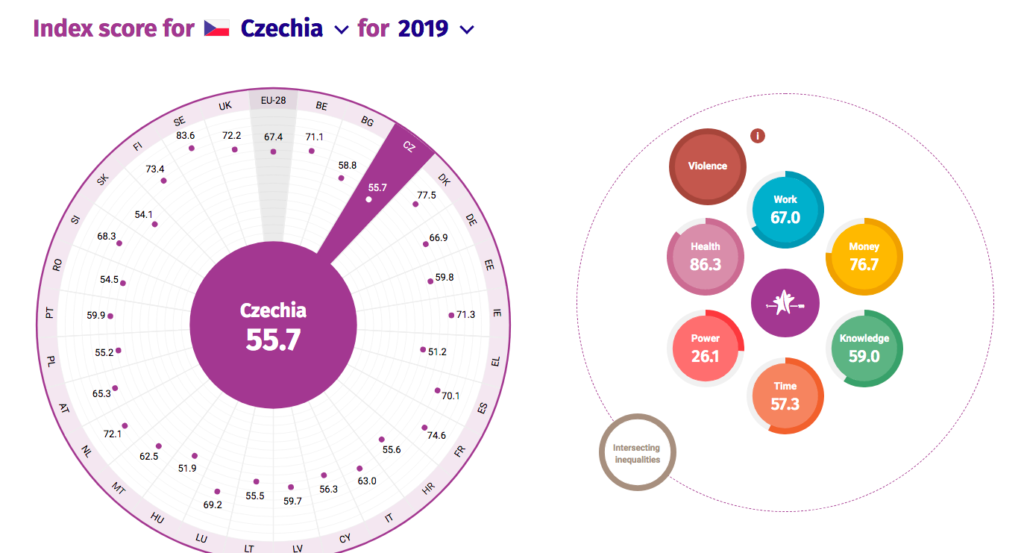The Index is a tool with six-core domains – work, money, knowledge, time, power, and health, as well as two additional domains: violence against women and intersecting inequalities. It gives more visibility to areas that need improvement and supports policymakers to design more effective measures.
The European Institute for Gender Equality released on 15 October its 2019 Gender Equality Index, showing that EU’s score for gender equality is up just one point to 67.4, since the 2017 edition.
With 55.7 out of 100 points, the Czech Republic ranks 21st in the EU on the Gender Equality Index. Its score is 11.7 points lower than the EU’s score.
Between 2005 and 2017, Czechia’s score increased by only 2.1 points. The country is progressing towards gender equality at a slower pace than the other EU Member States. Its ranking has dropped by four places since 2005.
Czech Republic’s highest score is in the domain of health (86.3 points), although this is one of the lower scores in the EU (ranking 18th). Since 2005, the Czech Republic’s scores have improved the most in the domain of knowledge (+ 6.8 points) and money (+ 6.5).
Sweden continues to top the EU scoreboard, with 83.6 points, followed by Denmark with 77.5. Greece and Hungary have the most ground to make up, with both scoring less than 52. The biggest improver is Portugal, with an increase of 3.9 points, followed closely by Estonia with 3.1 points.
Work-life balance and its connection to gender equality are a special focus of this year’s Index. In the EU, 28 % of women and 20 % of men are ineligible for parental leave.
“As the new EU Parliament and Commission shape and renew EU priorities for the next strategic framework, it is crucial that gender equality gathers speed”, said Virginija Langbakk, director of the European Institute for gender equality.
“Gender inequality is holding Europe back from reaching its full potential. I am proud of what we have achieved, however now our actions need to make a difference on the ground”, added Věra Jourová, EU Commissioner for justice, consumers and gender equality.


